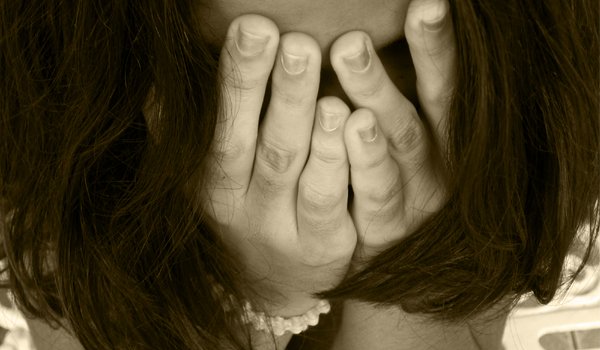Abuse and Violence in Relationships
Posted by: Rose Tol, R&I Life Coaching, March 26, 2013, Abuse and Violence in Relationships
 |
Abuse and Violence in relationships can happen to anyone. Many people are in a abusive relationship but do not even know it. The problem is often denied, smoothed over or diminished. This is even more the case when the abuse is psychological, rather than physical. Seeing and recognizing the signs of an abusive relationship is the first step to ending it. No one should live in fear of the person they love. If you recognize yourself or someone you know in the following warning signs and descriptions of abuse and violence, reach out. There is help available. |
Recognize the signs of Abuse and Violence
It's impossible to know for sure what goes on behind closed doors, but there are some telltale signs and symptoms of abuse and violence in relationships. If you witness any warning signs of an abusive relationship in a friend, family member, or co-worker, take them very seriously.
General warning signs of domestic abuse
People who are in an abusive relationship may:
- Seem afraid or anxious to please their partner.
- Go along with everything their partner says and does.
- Check in often with their partner to report where they are and what they’re doing.
- Receive frequent, harassing phone calls from their partner.
- Talk about their partner’s temper, jealousy, or possessiveness.
Warning signs of physical violence in an abusive relationship
People who are being physically abused may:
- Have frequent injuries, with the excuse of “accidents.”
- Frequently miss work, school, or social occasions, without explanation.
- Dress in clothing designed to hide bruises or scars (e.g. wearing long sleeves in the summer or sunglasses indoors).
Warning signs of isolation
People who are being isolated by their abuser may:
- Be restricted from seeing family and friends.
- Rarely go out in public without their partner.
- Have limited access to money, credit cards, or the car.
People who are being abused may:
- Have very low self-esteem, even if they used to be confident.
- Show major personality changes (e.g. an outgoing person becomes withdrawn).
- Be depressed, anxious, or suicidal.
Are you being emotionally abused?
 |
One of the areas re. abuse and violence in relationships that are often overlooked, denied or smoothed over is the area of emotional abuse. Just because you are not being physically hit or abused does not mean there is nothing wrong. An emotional abusive relationship can have devastating consequences on both physical and mental health. It can leave emotional scars that can run so deep. While emotional or psychological abuse may sometimes be difficult to pinpoint, it is happening rampantly. Here are some warning signs and examples of emotional abuse: |
- Threatening to leave or commit suicide
- Making you afraid by using looks, gestures or actions
- Smashing things
- Using economics or finances power to control you
- Controlling you through minimizing, denying and blaming
- Keep you from seeing your friends or family?
- Making light of the abuse and not taking your concerns about it seriously
- Continually criticizing you, calling you names, shouting at you
- Emotionally degrading you in private, but acting charming in public
- See you as property or a sex object, rather than as a person?
- Humiliating you in private or public
- Withholding approval, appreciation or affection as punishment
Results of Verbal and Emotional Abuse, from the Center for Relationship Abuse Awareness:
- A distrust of her spontaneity
- A loss of enthusiasm
- An uncertainty about how she is coming across
- A concern that something is wrong with her
- An inclination to reviewing incidents with the hopes of determining what went wrong
- A loss of self-confidence
- A growing self-doubt
- An internalized critical voice
- A concern that she isn't happier and ought to be
- An anxiety or fear of being crazy
- A sense that time is passing and she's missing something
- A desire not to be the way she is, e.g. "too sensitive," etc.
- A hesitancy to accept her perceptions
- A reluctance to come to conclusions
- A tendency to live in the future, e.g. "Everything will be great when/after …"
- A desire to escape or run away
- A distrust of future relationships
If you are wondering if you are dealing with abuse and violence in a relationship or you are suspecting it, CONTACT SOMEONE THAT CAN HELP!
Do not let shame, guilt or fear for further abuse stop you. You have to stop this cycle and you can with help by your side.
Are you in an abusive relationship? Make sure you have a safety plan.
If you are in a relationship where abuse and violence has happened, make sure you prepare yourself for it possibly to happen again. It is important for you to plan for your and your family's safety ahead of time. Some of the things you can think about is:
- Memorize important phone numbers of people to call in emergency
- If your children are old enough, teach them important phone numbers, including when to dial 999
- Keep information about domestic violence in a safe place, where your abuser won’t find it, but where you can get it when you need to review it
- Keep change for pay phones with you at all times
- If you can, open your own bank account
- Stay in touch with friends. Get to know your neighbors. Don’t cut yourself off from people, even if you feel like you want to be alone
- Rehearse your escape plan until you know it by heart
- Leave a set of car keys, extra money, change of clothes and copies of important documents with a trusted friend or relative: your own and your children’s birth certificates, children’s school and medical records, bank books, welfare identification, passport/green card, immigration papers, social security card, lease agreements or mortgage payment books, insurance papers, important addresses and telephone numbers
Speak up if you suspect abuse or violence
If you suspect that someone you know is being abused, speak up! If you’re hesitating—telling yourself that it’s none of your business, you might be wrong, or the person might not want to talk about it—keep in mind that expressing your concern will let the person know that you care and may even save his or her life.
Do's and Dont's re. abuse and violence in relationships
Do: Ask if something is wrong. Express concern. Listen and validate. Offer help. Support his or her decisions.
Don’t:
Wait for him or her to come to you. Judge or blame. Pressure him or her. Give advice. Place conditions on your support.
Adapted from: NYS Office for the Prevention of Domestic Violence
Talk to the person in private and let him or her know that you’re concerned and have recognized signs of possible abuse and violence. Point out the things you’ve noticed that make you worried. Tell the person that you’re there, whenever he or she feels ready to talk. Reassure the person that you’ll keep whatever is said between the two of you, and let him or her know that you’ll help in any way you can.
Remember, abusers are very good at controlling and manipulating their victims. People who have been emotionally abused or battered are depressed, drained, scared, ashamed, and confused. They need help to get out, yet they’ve often been isolated from their family and friends. By picking up on the warning signs of abuse and violence and offering support, you can help them escape an abusive relationship and begin healing.
 |
GET THE HELP YOU NEED AND DESERVE! There are many abuse and violence hotlines in each City. Call them. They know how to handle the situation and can guide you to safety if needed. AUSTRALIA: 1 800 RESPECT You are NOT alone... To read more on your options and how to get help please visit the following site on abuse and violence. |
back-to-top of Abuse and Violence in Relationships